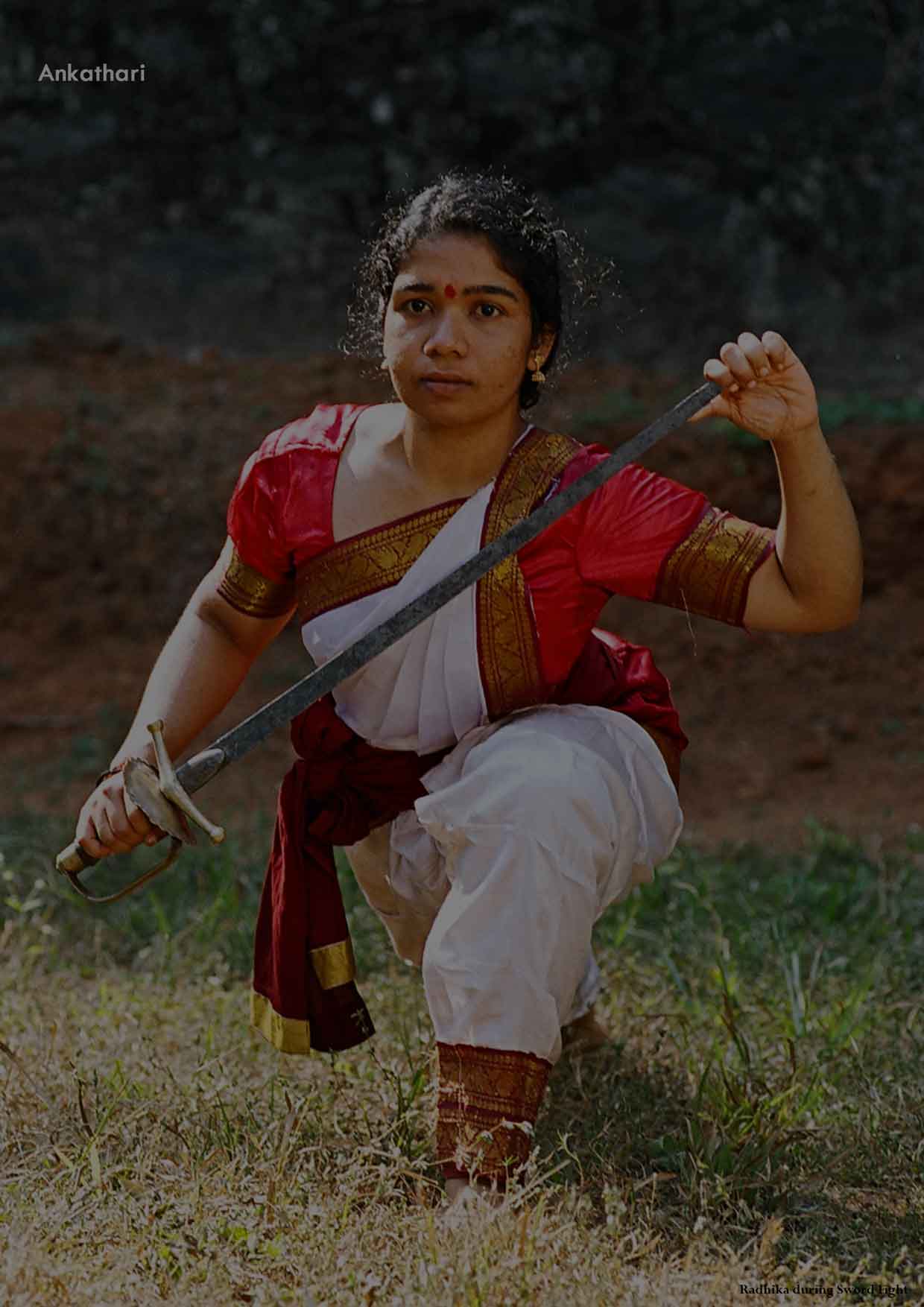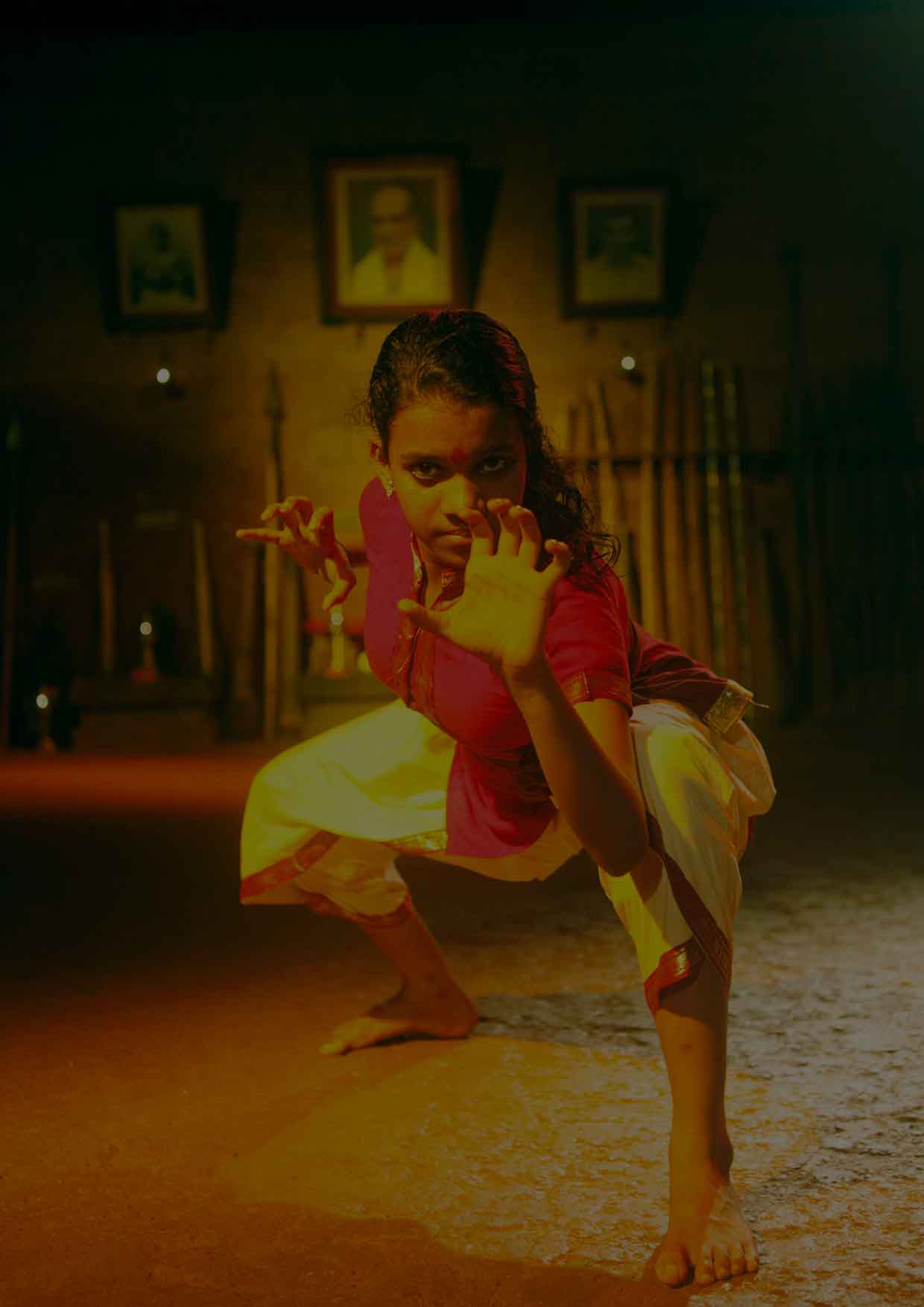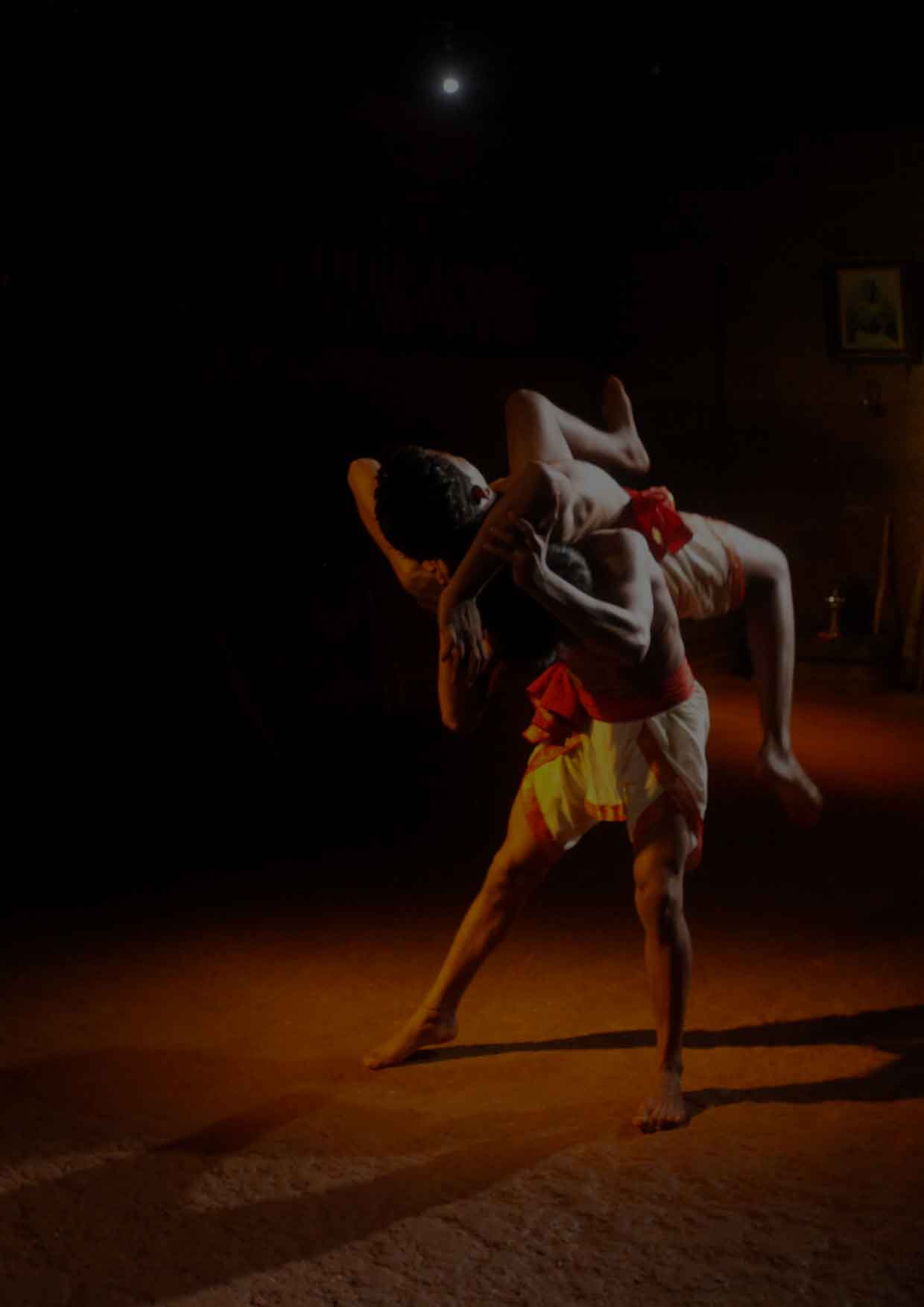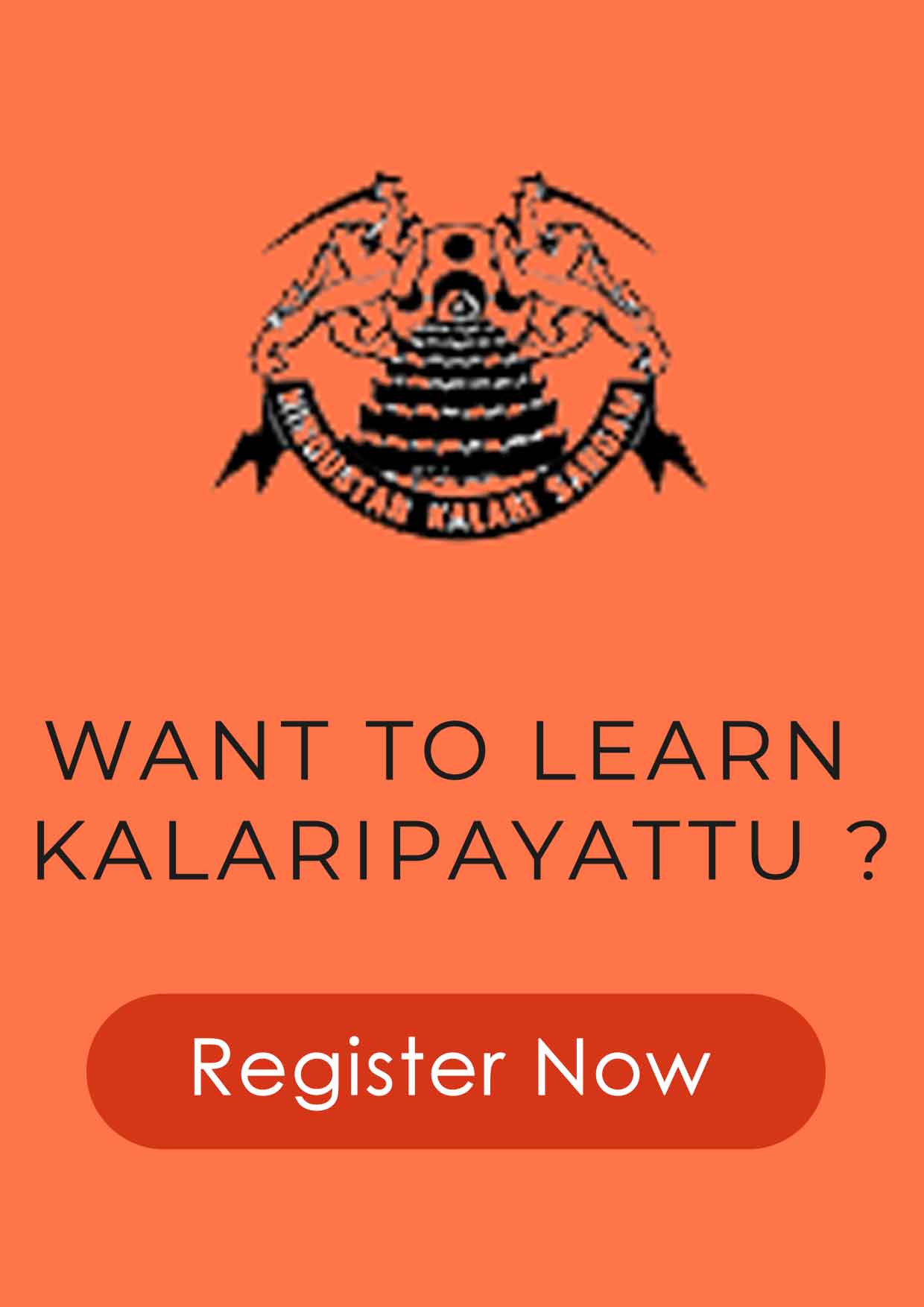Sami Gurukkal
Sami was born on 12th of May, 1934 in Calicut (Kozhikode), Kerala. His father name was Karrapan and his mother’s name was Valli. He had a sister and a brother. When his father passed away Sami was a boy and had to be reared by a relative. Naturally enough all he had was an elementary education and at 13 had to find work in a brick factory opposite to where he lived. With what he earned he fed his family which at the time consisted of a mother, a sister and a brother.
Growing up in pre-independence India and given his own economic back ground the sort of literature that attracted him was obviously the ones that focused on the need for extrodinarystrength of character, often patriotism as was so often the subject of talks and writings of Swami’s and Maharshi’s such asAurobindo and Vivekanand.


The style of Kalari he learnt and that which is taught here at HKS too, was the one he was taught, by a man named GovindanNambiar a wandering Guru who came here from a place called Talasheri. In those days such Guru’s – immensely learned – travelled the country teaching their art to ordinary countrymen in return for food and shelter. Local folks with a knack to learn would come together and receive tutelage of the Master. Nambiar was housed by Sami himself and the temple of Kalaripayattu which students today use to practise was established as far back in time as then.

Practise and the process of learning this art obviously caused injuries to students. Nambiar also taught Sami the cure to the wounds and fractures and he gave him the knowledge of the Kalari massage. After time with the Guru came to an end Sami also travelled to understand and learn more about massages and this greatly helped him to enlarge the art he had already been taught by Nambiar.


The natural trajectory of this man would obviously be learning Ayurveda for without it the learning would remain incomplete.DamoodaranVaidya – a man of deep understanding of the subject of Ayurveda – was also one of those sameGuru’s who travelled, they seek intelligent disciples, just like he did and that is how Sami came in touch with him. Sami received special attention from the master owing to his ability learn quickly and well. The master would give a book such as K.P.S. Variar’sChikulsaSangraham and Sami would return it having read in a matter of a few days. Damoodaran gave Sami books after books like MarmaShastram and VaidyaMalikha and apart from this rather extensive scholarship Damoodaran taught him secret treatments such as BasmaPrayogam and the preparation of the oil. Damoodaran would translate Ayurvedicgranthas from Sanskrit into Tamil, Hindi and Malayalam. The dictation would be taken by Sami. The hand writing is clear, easy to read and number in hundreds and hundreds. Later on he received mantra diksha from Sri AnanganandaNatath at very lodge of Dr.Vijayan. Interestingly enough, since at this point Sami was stilla daily wagelabourer at the brick factory, time for this academic pursuit had to be made only after dark and until midnight. Additionally at the time the only means of lighting was the candle light.

Sami remained with Damoodaran, his Master till he passed away. Damoodaran never practised but Sami did and did so after Damoodarans death. The results were good and it was perhaps time to relinquish the work of a labourer and pick this up as a full time occupation. Just in case Sami would not leave the job the job would have him leave though via an accident in which he lost his middle finger while operating machinery.
His marriage to Sharada in 1967 gave him five children – Laxmanan, Shatrugnan, Rajeshwari, Rekha and Radhika. Equipped with the knowledge and the legacy of Nambiar passed on to them through their father, Sami’s five children are Gurukkal’s who embody their parents faith in mental, physical and spiritual awareness. From their expertise in medicine, massage treatment and Kalaripayattu the citizens of Kozhikode profit on a regular basis. Similar to their father they too have taught in other places in India and dissimilar to their father they have also taught and demonstrated outside of India as well.
Apart from being able to spread this art to a larger populace what is also significant is the break away from the orthodox practise of the form and the effort made especially in Pondicherry to integrate Kalaripayattu with the theatrical spaces and practises within India.






 by Irizz Technology
by Irizz Technology